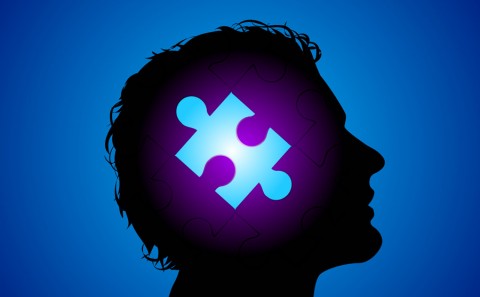Riddles of the Mind Part 1 - The Subconscious

What are the Roles of the Subconscious?
I believe the subconscious has 4 primary roles. These are self-preservation, protection, identity, and being the 'conductor' of time. The first 3 roles are relatively obvious, but you may be thinking what is this 4th role 'a conductor of time'? Let me explain, because this is where the true 'riddles' of the mind predominantly take place.
Your subconscious is responsible for doing 100's of different things at once. Some of these are obvious and some not so. At any moment in time your subconscious is referencing the past, the present, as well as the future. This is essentially what I mean by it being the 'conductor of time'. Just like an orchestra is led by its conductor, so too is everything that you think or create in your life being orchestrated through the subconscious.
How Does Time Affect our Thought Process?
All of your actions and thoughts in the 'now' are heavily influenced by what you have experienced in the past. Your subconscious categorises differing levels of importance on these experiences based on your belief system, morals, and the extent of impact left by that experience. Most of the time this happens autonomously without even being consciously aware of it. So when it feels like your life is going around in circles, constantly repeating the same themes over and over again, this is because the vast majority of 'things' that happen are already decided prior to, and outside of, your conscious awareness. Everything you do is heavily influenced by the subconscious referencing past experiences and coming up with an outcome based on reasoning such as:
- Is there a reason to be fearful of this situation?
- How have situations like this affected me in the past?
- Am I wasting my time based on what has happened in the past?
- What has been the result of other situations like this in the past?
Depending on the extremity of the associative references, these will change your reactions, thoughts, feelings and even your physical self on many different levels. This is because the other primary role of the subconscious is to look after and protect you, so it draws upon all the information it can access to make what it 'deems' to be the best decision for conscious action. Often this is not necessarily the 'best' decision which is where things can get complicated and the 'riddles' occur.
How The Process Plays Out
The subconscious primarily relays information to the conscious through indirect language as well as dreams. This information is largely dependent on the instructions, questions, directions, and targets originating from the conscious mind, which in turn are relayed back creating cause and consequence. If consciously we do not ask the right questions and provide the right information, this is when negative outcomes tend to occur. Essentially this is why some people get caught in the trap of repeating the same mistakes and always making the wrong decisions. Examples of this could be constantly attracting the wrong type of people into your life, never meeting your goals, or simply not living to your full potential.
The way your subconscious likes to treat any type of experience is to analyse it, deal with it, store in the reference bank for later, and then be done with it. By this I mean it needs instantaneous closure and to learn a lesson for next time. Furthermore this process is always 'black and white' meaning that it is always what you perceive to be true within - so no room for excuses or justifications or 'grey lines'. This is what I mean by “the truth will always set you free”, which is a saying I like to use quite often because it is so, well, true. It is the same as when you hear a person that continues to repeat themselves over and over again about the same thing that bothers them. This is because within themselves they are searching for that one thing that has been said which will give them closure.
The importance of the right lines of communication
The biggest key for the subconscious to help create the best outcomes is to consciously ask the right questions. As mentioned above, this is done through direction, target and instruction. Ask the right questions and you'll get the right answers. Often a major obstacle to this line of communication is ego. Ego is attached to your self-esteem and can affect taking responsibility for your actions, behaviors, mistakes and doing the wrong things. Letting your ego take hold will misconstrue the questions you ask and the overall decisions that you make. To do it the right way, you should always be mindful of taking control of your emotions by way of encouragement, reassurance, trust and faith before you think about doing something. This will enable the subconscious to create a more solid path based in the 'now', helping further confirm your identity and abilities.
With this said, effort, action and knowledge are always required to get the right results. This is because chance favours the prepared mind. If you are not willing to make the effort to really think about the questions you are asking, you will always subconsciously end up in situations that have the purpose of helping you acquire the skills and knowledge needed to create the desired outcome instead of just achieving it straight up. When this happens you may find that it takes longer to reach your desired outcome, or worse still, that you never end up there at all.
From all of this, it must be stated that the old saying “be careful what you wish for” is very much true. Even if you don't consciously take the steps towards what you wish for, subconsciously you will create your own steps. The issue with this is that without direction, the steps could lead you into a direction which is not particularly positive. So really the best advice I can give is to be direct, leave no details for guessing and less talk, more action! Just like a jigsaw puzzle, if you leave too many pieces out, you will not see the big picture and will waste time trying to create the outcomes that you desire.





















Add new comment